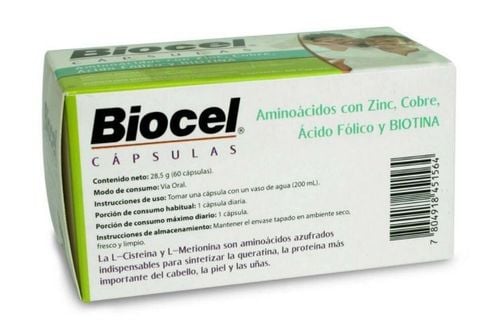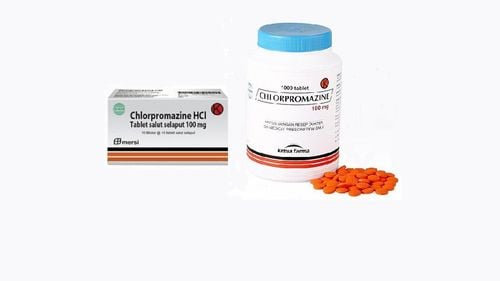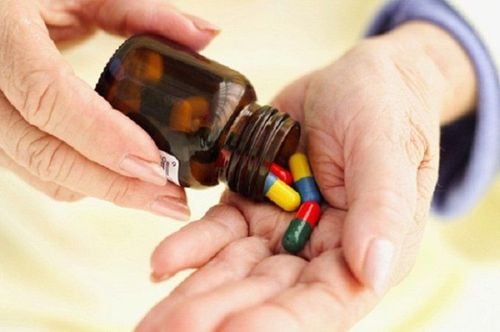This is an automatically translated article.
Aging is a natural process that occurs in the body, which increases with age. A term related to this process that is being mentioned by many people is healthy aging. So what is healthy aging?
1. What is healthy aging?
At the biological level, aging is the result of the accumulation of various types of cellular and molecular damage over time. This leads to a gradual decline in physical and mental capacity, an increasing risk of illness and eventually death. These changes are neither fixed nor consistent, they are only loosely related to a person's age in years.
The variety of manifestations seen in old age is not coincidental. In addition to biological changes, aging is often associated with other life changes such as retirement, moving to a more suitable home, and the death of friends and partners.
Common health conditions in old age include hearing loss, cataracts and refractive errors, chronic obstructive pulmonary disease, diabetes, back and neck pain and osteoarthritis, depression and dementia wisdom . As you age, you are more likely to experience several conditions at once.
Old age is also characterized by the emergence of several complex health conditions commonly known as geriatric syndromes. It is often the result of many underlying factors. The syndrome of aging often includes weakness, urinary incontinence, falls, delirium, and pressure ulcers.
Your health will change with age, the needs in life also change. However, one thing remains unchanged: the desire to be healthy. Healthy aging is a healthy way of living to avoid disease, prolong life, live happier. Living longer, healthier can become easier if you know how.
2. What to do for healthy aging?
2. 1. Eat natural foods Processed foods often contain many of the following substances:
Sugar Sodium Unhealthy fats Calories You should avoid processed foods and choose natural foods. Natural foods such as:
Fresh fruits and vegetables Grains Fiber-rich foods Fresh fish Poultry 2. 2. Vitamin supplements You can supplement your vitamins with a daily multivitamin specially designed for humans older adults, but eating foods rich in vitamins may provide more benefits. Many foods that are full of vitamins also provide healthy fiber and minerals. Prepare your meals with foods rich in vitamins, but continue to take your multivitamin just in case.
2. 3. Exercise Physical activity is important for developing the strong bones and muscles you need to avoid falls or accidental injury. Exercise is the best way to avoid obesity and many diseases in people of all ages.
If you have been physically inactive in recent years or are worried about starting to exercise again, talk to your doctor before starting. Your doctor may recommend a structured or supervised exercise environment such as a rehabilitation clinic. Many hospitals have this type of clinic for patients and people with health concerns.
Aim for 30 minutes of physical activity each day. You can break it up into three 10-minute sessions and get the same benefits as a 30-minute straight workout.
2. 4. Quit Smoking Quit the habit of smoking, and stay away from smokers. Secondhand smoke can also be dangerous. Once you stop smoking, your risk of heart disease and certain cancers begins to decrease immediately. The longer you quit smoking, the better, the risks continue to decrease over time.
2. 5. Preventing falls The risk of falling increases as you get older. Rates of morbidity and mortality related to falls are also much higher in the older population. Older adults are more susceptible to injury from falls or accidents, so it's important to anticipate potential hazards in your home.
Potential hazards may include, stairs, high bathtub walls and slippery floors. Additionally, exercise can improve your strength and balance. If you fall or have an accident, being physically active can make your recovery easier.
2. 6. Regular health checkups Seeing your doctor regularly for annual checkups or to discuss your overall health will help catch any potential problems. As you get older, you may need to take a number of different medications. It's helpful to review your prescription regularly so your doctor can monitor any changes or side effects to your medication.
2. 7. Driving Things that come with aging like vision changes and slower reaction times make driving more difficult and can increase the chance of an accident. Don't ignore any new problems you notice. Talk to your doctor about your problems and see if there are any solutions, and if your health is still warranted for driving.
Above are basic information about healthy aging and exercise for the elderly, you can refer and apply to get a better quality of life.
Please dial HOTLINE for more information or register for an appointment HERE. Download MyVinmec app to make appointments faster and to manage your bookings easily.
Reference source: healthline.com - who.int












